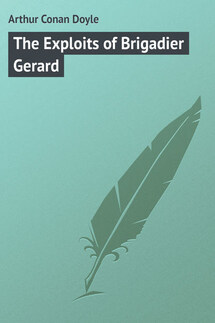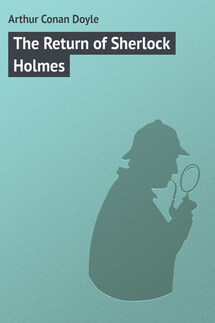Through the Magic Door - страница 10
He employed his creative faculty for about twenty years, which is as much, I suppose, as Shakespeare did. The bard of Avon is another example of the limited tenure which Genius has of life, though I believe that he outlived the greater part of his own family, who were not a healthy stock. He died, I should judge, of some nervous disease; that is shown by the progressive degeneration of his signature. Probably it was locomotor ataxy, which is the special scourge of the imaginative man. Heine, Daudet, and how many more, were its victims. As to the tradition, first mentioned long after his death, that he died of a fever contracted from a drinking bout, it is absurd on the face of it, since no such fever is known to science. But a very moderate drinking bout would be extremely likely to bring a chronic nervous complaint to a disastrous end.
One other remark upon Scott before I pass on from that line of green volumes which has made me so digressive and so garrulous. No account of his character is complete which does not deal with the strange, secretive vein which ran through his nature. Not only did he stretch the truth on many occasions in order to conceal the fact that he was the author of the famous novels, but even intimate friends who met him day by day were not aware that he was the man about whom the whole of Europe was talking. Even his wife was ignorant of his pecuniary liabilities until the crash of the Ballantyne firm told her for the first time that they were sharers in the ruin. A psychologist might trace this strange twist of his mind in the numerous elfish Fenella-like characters who flit about and keep their irritating secret through the long chapters of so many of his novels.
It's a sad book, Lockhart's "Life." It leaves gloom in the mind. The sight of this weary giant, staggering along, burdened with debt, overladen with work, his wife dead, his nerves broken, and nothing intact but his honour, is one of the most moving in the history of literature. But they pass, these clouds, and all that is left is the memory of the supremely noble man, who would not be bent, but faced Fate to the last, and died in his tracks without a whimper. He sampled every human emotion. Great was his joy and great his success, great was his downfall and bitter his grief. But of all the sons of men I don't think there are many greater than he who lies under the great slab at Dryburgh.
III
We can pass the long green ranks of the Waverley Novels and Lockhart's "Life" which flanks them. Here is heavier metal in the four big grey volumes beyond. They are an old-fashioned large-print edition of Boswell's "Life of Johnson." I emphasize the large print, for that is the weak point of most of the cheap editions of English Classics which come now into the market. With subjects which are in the least archaic or abstruse you need good clear type to help you on your way. The other is good neither for your eyes nor for your temper. Better pay a little more and have a book that is made for use.
That book interests me – fascinates me – and yet I wish I could join heartily in that chorus of praise which the kind-hearted old bully has enjoyed. It is difficult to follow his own advice and to "clear one's mind of cant" upon the subject, for when you have been accustomed to look at him through the sympathetic glasses of Macaulay or of Boswell, it is hard to take them off, to rub one's eyes, and to have a good honest stare on one's own account at the man's actual words, deeds, and limitations. If you try it you are left with the oddest mixture of impressions. How could one express it save that this is John Bull taken to literature – the exaggerated John Bull of the caricaturists – with every quality, good or evil, at its highest? Here are the rough crust over a kindly heart, the explosive temper, the arrogance, the insular narrowness, the want of sympathy and insight, the rudeness of perception, the positiveness, the overbearing bluster, the strong deep-seated religious principle, and every other characteristic of the cruder, rougher John Bull who was the great grandfather of the present good-natured Johnnie.









